Reframing narratives on migration
OHCHR and migration
Instead of repeating harmful narratives of fear and exclusion, it’s time to welcome people into our communities, to reimagine our collective future
Michelle Bachelet, UN High Commissioner for Human Rights
How we perceive and speak about migrants and migration – the narrative – plays a fundamental role in guaranteeing equality and the human rights of migrants. OHCHR is thus actively engaged in challenging and reframing harmful narratives on migration through its #StandUp4Migrants campaign and toolbox, and its engagement with a range of partners and migrants themselves.
Why narratives matter
Harmful and dehumanising narratives on migration have increasingly permeated political movements, media and other forms of public discourse in many countries. Such narratives have used migrants as scapegoats for deep-rooted societal problems and fears, often for political or financial gain.
When migrants are criminalized and even dehumanized by policies and rhetoric, the result is often that they are left without human rights, without a place in society. The effects of such divisive narratives are also wide-reaching within our societies.
While narratives are part of the problem, they can also represent a powerful tool for change. OHCHR therefore seeks to shift narratives of fear, hate and division to those that uphold everyone’s human dignity and focus on what we have in common.
Get Inspired: UN Human Rights Vision for the World
How to reframe narratives on migration
Together with partners from different regions of the world, OHCHR developed a seven-step guide, based on OHCHR’s Seven key elements on building human rights-based narratives on migrants and migration. The interactive online toolbox offers ideas, downloadable activities and inspiration for organisations and anyone who wants to play a role in shifting narratives on migration.
The toolbox is accompanied by #StandUp4Migrants a campaign, which helps illustrate the toolbox in action. It focuses on humanising migrants through the voices of migrants themselves and the people who welcome them. By emphasising what we have in common, the warm welcome of communities and how human connection and understanding starts with a conversation, the campaign showcases how our vision for the future already exists and can be expanded for others to experience the positive impact as well.
Research findings and experiences were gathered through expert meetings, partnerships with business, advertisers and influencers, as well as platforms for migrants and migrant rights defenders to share their stories, including through a series of animated video stories to amplify the voices of migrants, the communities that welcome them and the conversations they have along the way.
Related resources
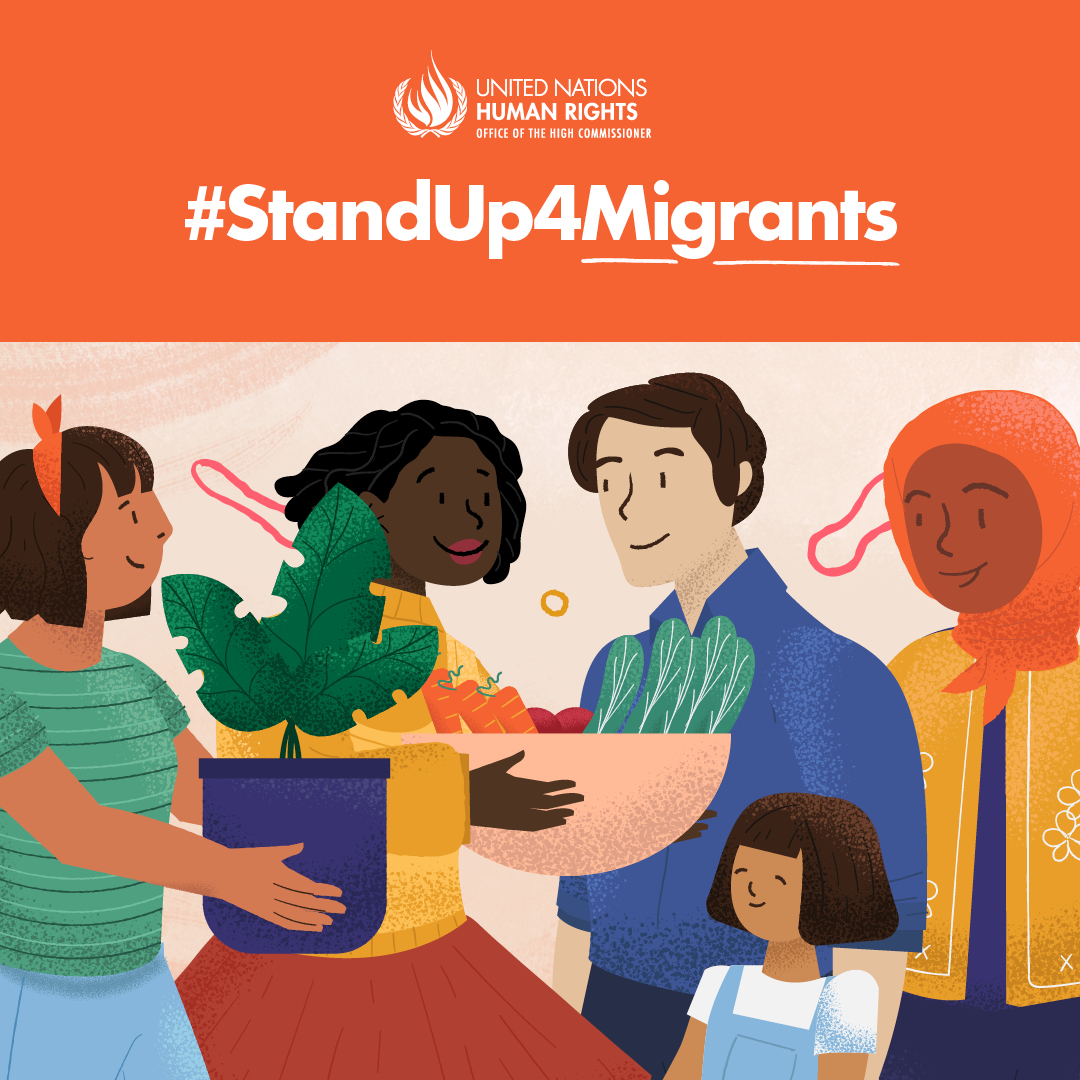
#StandUp4Migrants Campaign (2020)
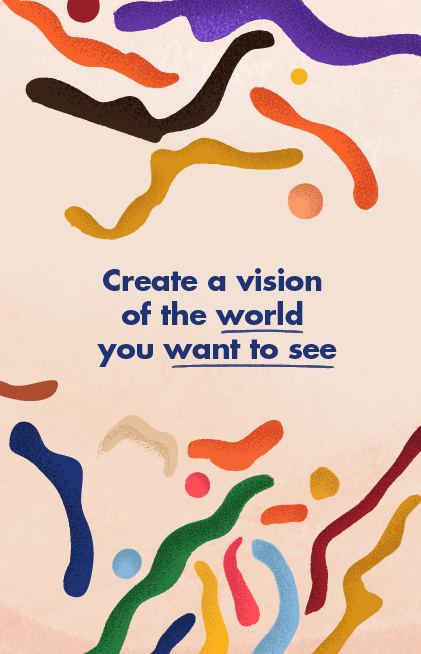
Toolbox on migration narrative change (2020)
Publication
OHCHR, Building Human Rights-Based Migration Narratives: the Story of #DariDapur and #MyGreatStory (2024)
OHCHR, Seven key elements on building human rights based narratives on migrants and migration (2020)
Video series
Animated video series to amplify the stories of migrants and welcoming communities (2017-2018)
Migrants’ voices
Migrants dispelling the myths (2015)
Migrants: “We are not criminals” (2015)
Cartoons
OHCHR-ILO, cartoons to challenge myths and encourage a positive public perception of migrants and migration (2013)
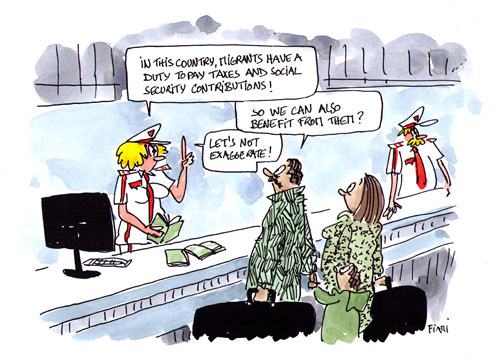
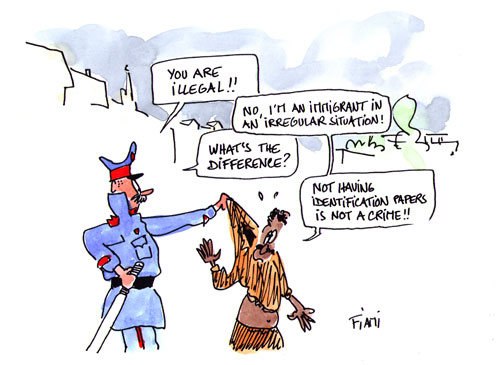
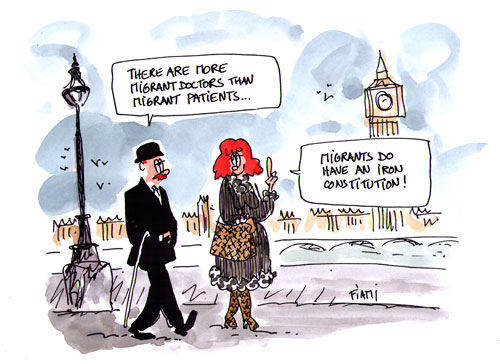
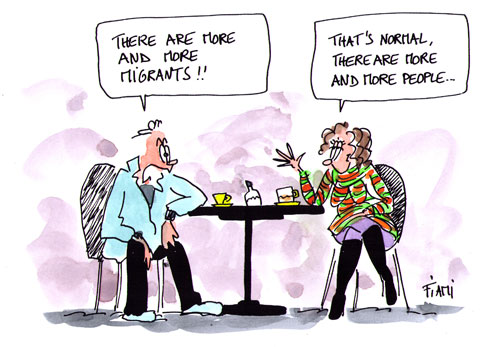
Leaflet
OHCHR, Public perceptions, migration and human rights(2013)
Related events and activities
- UN Forum on Business and Human Rights Event: The economics of hate – the role of business in ensuring ethical advertising, 26 November 2019
- Roundtable on confronting hate in our societies and reshaping narratives on migration, 10 July 2019
- Stand-Up for Migrants Comedy Event, 20 December 2018
- OHCHR and The Guilty Feminist Podcast Episode, 20 December 2018
- UN Forum on Business and Human Rights Event: Promoting inclusion and countering anti-migrant narratives: Leveraging the role of business, 27 November 2017
- Expert Meeting on building partnerships to counter anti-migrant narratives, 11 May 2017
- Expert Roundtable on shaping the public narrative on migration, 21 April 2016
- Panel discussion on promoting tolerance, dispelling myths, protecting rights: an evidence-based conversation on migration, 18 December 2015